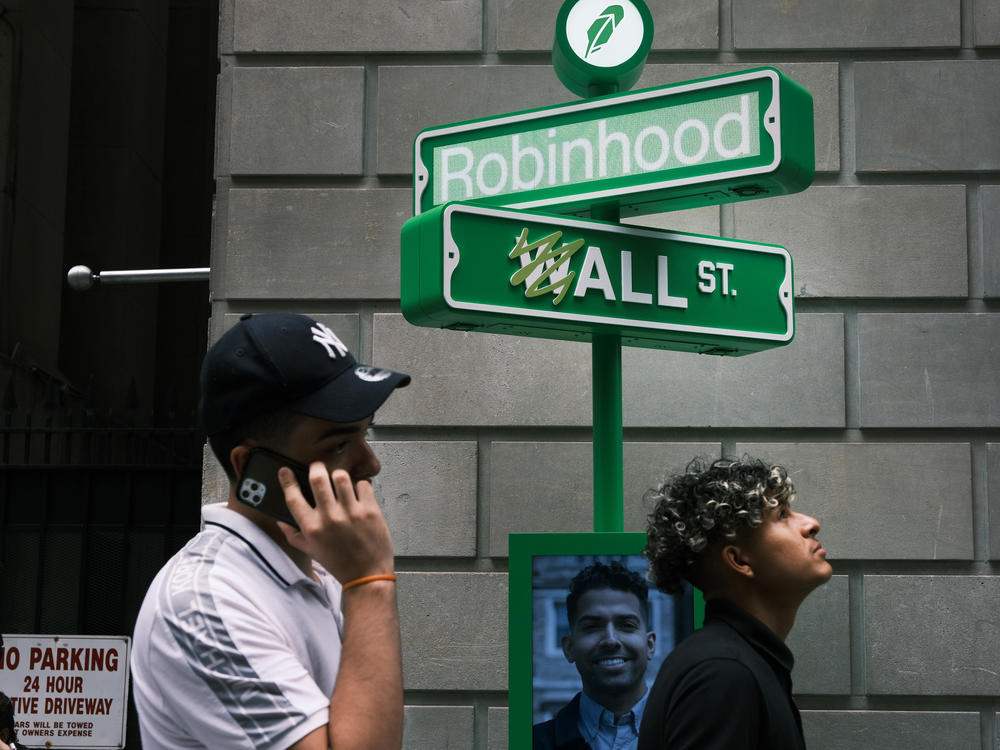Section Branding
Header Content
Robinhood cuts nearly a quarter of its staff as the pandemic darling loses its shine
Primary Content
The problems are mounting for Robinhood, a company that had big ambitions to revolutionize markets by attracting millions of amateur investors into stock trading for the first time.
On Tuesday, the company announced plans to cut almost a quarter of its staff, citing economic uncertainty, a steep selloff in cryptocurrencies, and a deteriorating market environment.
This is the second round of layoffs for Robinhood, which reduced its workforce by about 9% in April.
The cuts mark another reversal for a company that created an app for trading stocks that became wildly popular when COVID-19 spread and the economy shut down, leaving millions stuck at home with plenty of time on their hands.
At the time, interest rates were near zero, tech companies were expanding, and Americans had extra cash thanks to stimulus checks from the federal government.
But a deep downturn in markets has eroded Robinhood's fortunes this year. The company has seen its shares tank more than 70% since raising almost $2 billion when it went public in a high-profile initial public offering in 2021.
On Tuesday, CEO Vlad Tenev acknowledged in a blog post that the first staff reduction a few months ago "did not go far enough."
"As CEO, I approved and took responsibility for our ambitious staffing trajectory — this is on me," he wrote. "In this new environment, we are operating with more staffing than appropriate."
This has been a tough year for stocks, which were trading at record highs at the end of 2021. Persistently high inflation led the Federal Reserve to raise interest rates aggressively, and that has hit high-growth tech stocks particularly hard.
On top of that, the world is learning to live with the pandemic and people are no longer confined to their homes. As a result, Robinhood has faced a steep drop in active users and eroding earnings.
Robinhood has also attracted government scrutiny.
Also on Tuesday, a New York financial regulator fined the company $30 million "for significant failures in the areas of bank secrecy act/anti-money laundering obligations and cybersecurity."
Robinhood is not the only tech company to lay off staff. Shopify, Netflix, Tesla and several crypto companies have also cut their workforces amid the worsening economic outlook.
Copyright 2022 NPR. To see more, visit https://www.npr.org.


